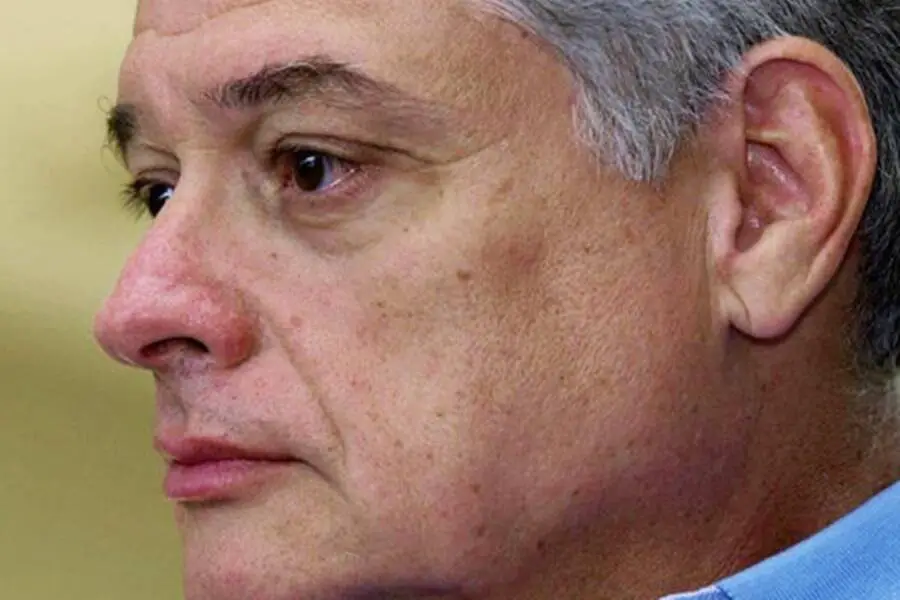Jerry Jacobson Mcmillion’s Scam: The Macdonald Monopoly Scandal
Jerry Jacobson, basically pulled off a crazy scheme for over a decade, making off with more than $24 million. How did he do it? Well, he figured out a way to cheat in McDonald’s Monopoly game, you know, that thing where you peel off the sticker on your hash brown or soda cup to see if you won anything from a free sandwich to a million bucks Jacobson, being the crafty guy he was, managed to steal and sell these winning game pieces. For 12 whole years, he kept gaming the system, and it wasn’t until later that he finally got caught. What Is the Jerry Jacobson Mcmillion’s Scam all about? This article will expose how this scam works.

What Is The Jerry Jacobson Mcdonald’s Scam
McDonald’s started this Monopoly game back in 1987 as a fun promotion. They used these game pieces on their food cartons and cups, and if you got lucky, you could win anything from small stuff like soda or fries to big prizes like a car, a vacation, or even a million dollars.
It all started with Jerry Jacobson, the mastermind of the operation, being the crafty guy he was, managed to steal and sell these winning game pieces. For 12 whole years, he kept gaming the system, and it wasn’t until later that he finally got caught. He worked in private security after a brief stint as a cop in Florida. His wife, Marsha, got him a job at Dittler Brothers, the company printing those Monopoly game pieces.
How The Jerry Jacobson Mcmillion’s Scam Works
Lucky Break
Jacobson stumbled onto this whole Monopoly thing by accident. A supplier goofed up and sent him a package full of special seals that keep envelopes sealed tight. Little did he know, these seals were like his secret Monopoly treasure.
Bathroom Swap
Now, In airport bathrooms on their way to packaging plants, He’d open envelopes full of Monopoly game pieces, ditch the original seal, and switch regular pieces with the winning ones. Then, he’d seal everything back up with those special seals he got by mistake.
Similar Scam: Stella Trademark Registration Scam
Roadside Deals and Winning Strategies
Jacobson handed off the winning pieces to his buddies, like Colombo and some other people they recruited. These guys weren’t just holding onto the winnings; they were on a mission to find people willing to buy them. For example, he sold a $1 million piece to Gloria Brown, right there on the side of a highway, with cash changing hands. And get this, he even told her to lie and pretend she lived somewhere else. Why? Because too many winners in one neighborhood would raise suspicions.
Meet Andrew Glomb, he used to be into selling drugs, and the year he supposedly “won” a million bucks from Jacobson’s stolen game pieces, he got caught in a $400k drug bust.
Then there’s this random crew – a guy with diabetes and a gambling problem, a regular dad about to go broke, and even a hospital charity. Over 50 of them got in trouble, facing charges like mail fraud and conspiracy. Most ended up with probation and had to pay back the money they got from the scam.
The Players in the Monopoly Jerry Jacobson Mcmillion’s Scam
The Inside Man: Jacobson’s Monopoly Connection
Jerry Jacobson, the brains behind the operation, started out working in private security after a brief stint as a cop in Florida. His entry into the Monopoly game came through his wife Marsha, who helped him land a job at Dittler Brothers, the company responsible for printing the McDonald’s game pieces. Later, he switched to Simon Marketing, another player in the same game.
Family Ties and Local Connections
Jacobson didn’t keep it strictly professional. He began by slipping winning game pieces to people he knew, like his stepbrother and even his local butcher, who paid a hefty $2,000 for a stolen $10,000 piece. The scam wasn’t just about big players; it started small, within Jacobson’s inner circle.
Expanding the Scheme: Meet the Accomplices
As Jacobson’s appetite for deception grew, so did his network. He met Gennaro Colombo, who claimed to be tied to New York’s Colombo crime family, by chance at the Atlanta airport in 1995. Another chance encounter led him to Don Hart, who then introduced him to Andrew Glomb at a dinner party.
As the 1990s rolled on, Jacobson wasn’t pulling off his Monopoly scheme solo. He had a crew of middlemen, kind of like his right-hand friends, making the whole operation bigger and, oddly enough, trickier.
Let’s meet the key players:
1. Don Hart – The Cruise Connection:
- He not only joined Jacobson’s scheme but brought two more people into the shady business.
2. Richard Couturier – The Party Guy:
- Don Hart’s buddy, Richard Couturier, was into throwing house parties. But these weren’t your usual gatherings. He was handing out stolen winning Monopoly game pieces like party favors. Little did he know, this move made it easier for the FBI to catch on.
3. Dwight Baker – The Struggling Foster Parent:
- Meet Dwight Baker, a real estate developer and foster parent who was going through some tough financial times. Jacobson roped him into the scheme, and Dwight started spreading the stolen game pieces through his family and church community.
So, it’s like Jacobson built a whole network of accomplices, each playing their part in this real-life Monopoly hustle. It’s almost like a crime version of assembling a team for a weird game night. These guys became the middlemen, helping Jacobson sell the stolen game pieces to unsuspecting “winners.”
The Price of Deceit: Transactions and Profits
The Monopoly scheme wasn’t just about the thrill; it was a money-making operation. Jacobson sold pieces to his accomplices and others, sometimes turning a tidy profit. His local butcher paid $2,000, and his nephew exchanged $45,000 for a $200,000 piece. The financial transactions added up, contributing to Jacobson’s staggering $24 million over 12 years.
Unraveling the Web: FBI Investigation and Downfall
When the FBI got wind of what was going on, they started digging into the whole Monopoly mess. The problem was, Jacobson had met his partners in crime by pure luck, making it tricky for the feds to track them down. Imagine trying to connect the dots when they’re scattered all over the place. The authorities had to connect the dots, exposing the entire operation and leading to the downfall of Jacobson and his crew. The Monopoly game turned out to be more than just a fun promotion; it became the backdrop for a real-life crime saga.
Anonymous Tips and the FBI Bust: How the Jerry Jacobson Mcmillion’s Scam Unraveled
In 2000, an anonymous tip reached the FBI, leading to “Uncle Jerry” and his Monopoly manipulation. Agent Richard Dent took the lead, tracing winners’ addresses back to Jacobson’s lake house. Despite legal risks, the FBI convinced McDonald’s to run one more Monopoly promo for the final evidence. The move paid off, leading to arrests in 2001, with Jacobson facing the charge of conspiracy to commit mail fraud.
Impact Of The Jerry Jacobson Mcmillion’s Scam
Trust Issues and Sales Hit
- The McMillions scam seemed like a sly move against McDonald’s, but guess what? It totally blew up. The rigged contests didn’t just cheat McDonald’s; they messed with people’s trust. McDonald’s had to stop their fun promotions for a long time because the excitement turned into doubt. It hurt sales, and people felt like they got let down.
Trickery and Crushing Hopes
- This scam wasn’t just about grabbing money; it made up fake stories that fooled the media and charity sponsors. The FBI had a tough time sorting through all the lies. Families got dragged into this mess, feeling embarrassed for something they didn’t even know was a scam. Even if McDonald’s customers didn’t directly feel cheated, the scam indirectly took money from the advertising pot, which could have lowered meal prices.
Loss of Innocence and High Hopes Dashed
- The real sad part here is not just losing money. The scam didn’t just grab cash; it took away the fun of national contests. People’s dreams got crushed, and over 50 folks got mixed up in this mess for very little gain. The victims weren’t just McDonald’s customers or shareholders; it was everyone who believed in the excitement of winning something. The scam didn’t just mess with money; it messed with our hope and excitement.
Impact That Sticks Around
- The McMillions scam didn’t just fade away. It left a mark on how we think about fraud. It gave ideas to others to try similar tricks, and it became a big topic for mystery shows. In a strange way, a forgotten scandal ended up teaching us a lesson about stopping fraud and telling stories. On the dark side, it became a guide for future cheaters, showing them new ways to cheat in contests. So, this scam keeps influencing how we secure prizes, all because of something that happened decades ago.
Conclusion
The Jerry Jacobson McDonald’s Monopoly scam saga has become a monopoly fraud documentary, it’s a tale of how a guy turned a simple game into a multimillion-dollar hustle. Jacobson, entrusted with keeping the Monopoly promotion secure, ended up stealing winning pieces and selling them for over a decade. The scheme involved a network of friends, family, and even connections with alleged mob figures.
So, what’s the takeaway from this real-life Monopoly drama? Stay vigilant in the face of unexpected opportunities, guard your personal information like a prized possession, and be wary of anything that seems too good to be true. Scams can happen anywhere, even in the most unsuspecting places like a fast-food game. Keep your wits about you, trust your gut, and spread the word to help others avoid falling into similar traps.
